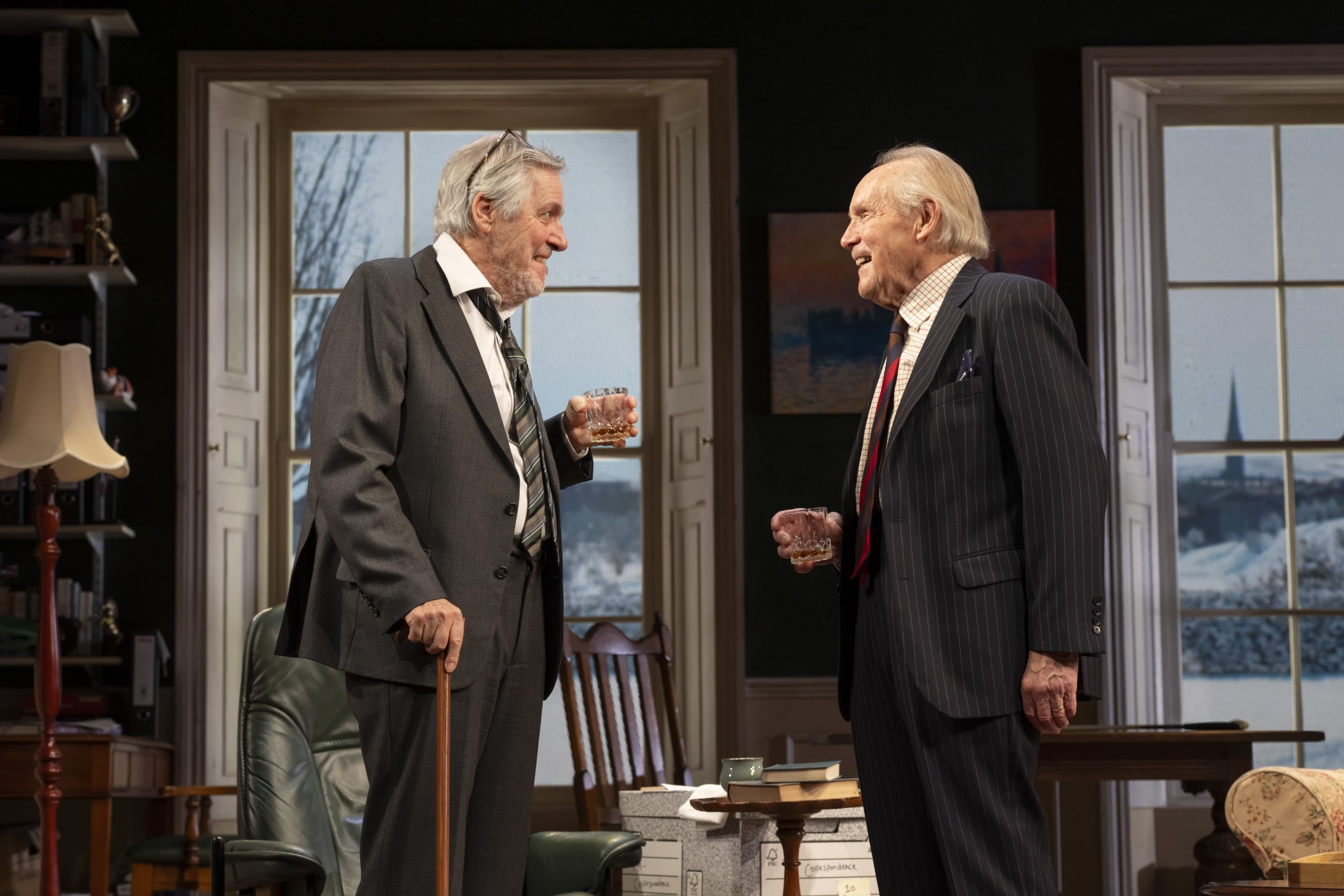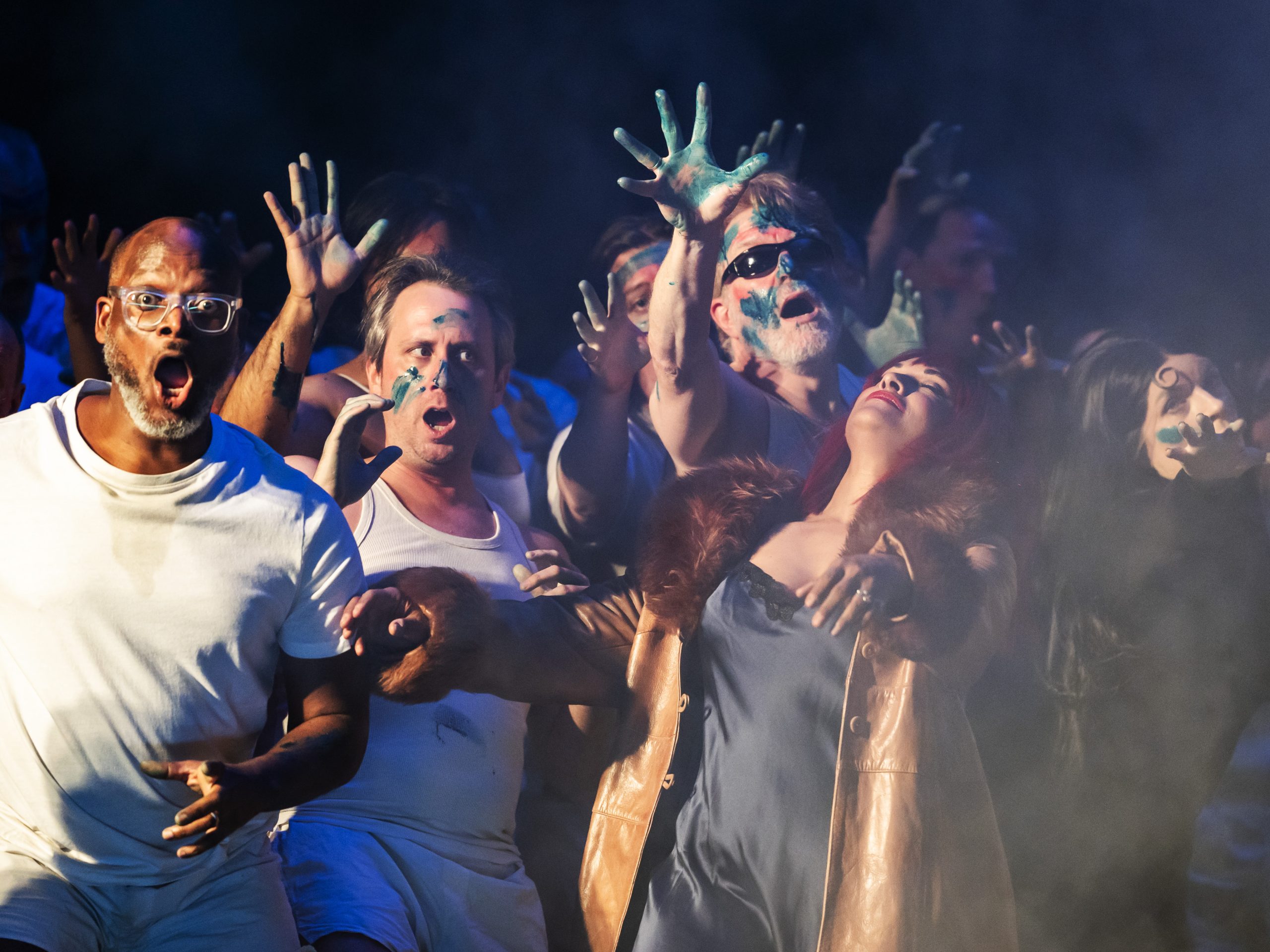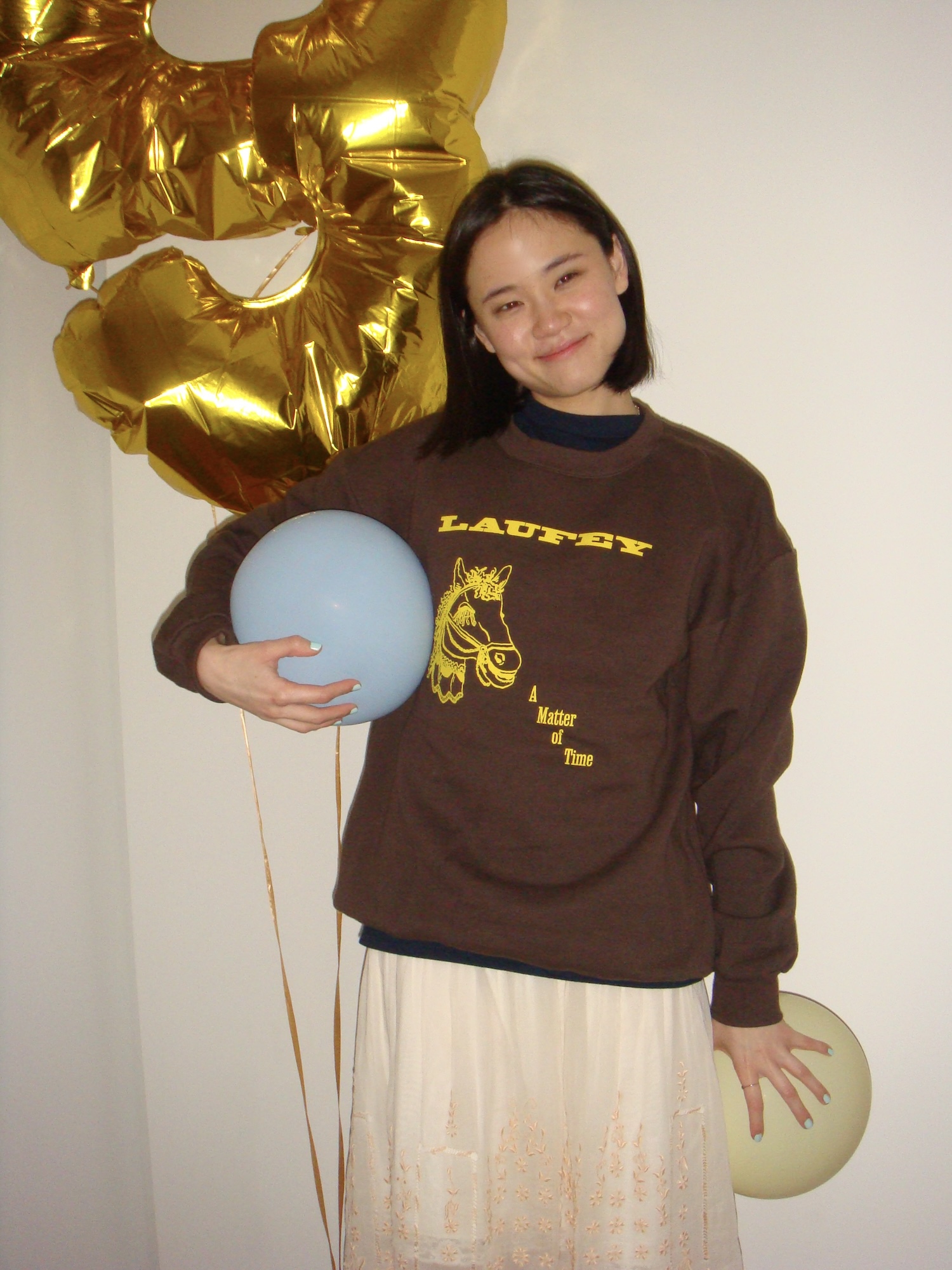Arsema Thomas doesn’t do anything by halves. Before acting, she’d earned two degrees, worked in global health, and trained as a reproductive rights activist. Whether she’s researching 13th-century saints, designing jewellery to support anti-poaching militias, or stealing scenes as young Lady Danbury in Queen Charlotte, she brings rigour, passion, and a deep sense of purpose to everything she touches. In Poor Clare, her professional stage debut, she steps into the sandals of Clare of Assisi – a rich girl turned revolutionary – in a timely, politically charged production that’s already packing out the Orange Tree theatre. I spoke to Arsema about privilege, power, radical generosity, and what it takes to create a new way of living.
You’re making your professional stage debut, playing Clare of Assisi. What was it about this story that really drew you in?
Honestly, it was the language that struck me first – you expect something lofty or historical, but it was so modern and accessible. And then the subject matter hit me hard. Like Clare, I’ve grown up with privilege, and that brings tough questions: why do I deserve what others don’t? What can I do with what I have?
That’s what drew me in. Clare sees injustice and chooses action. That resonates. At drama school, I didn’t have to work, but many of my peers did – and some couldn’t afford to be there at all. It made me realise how much of success is about access. Rather than spiral about that, I try to ask: how can I use what I have to help others?
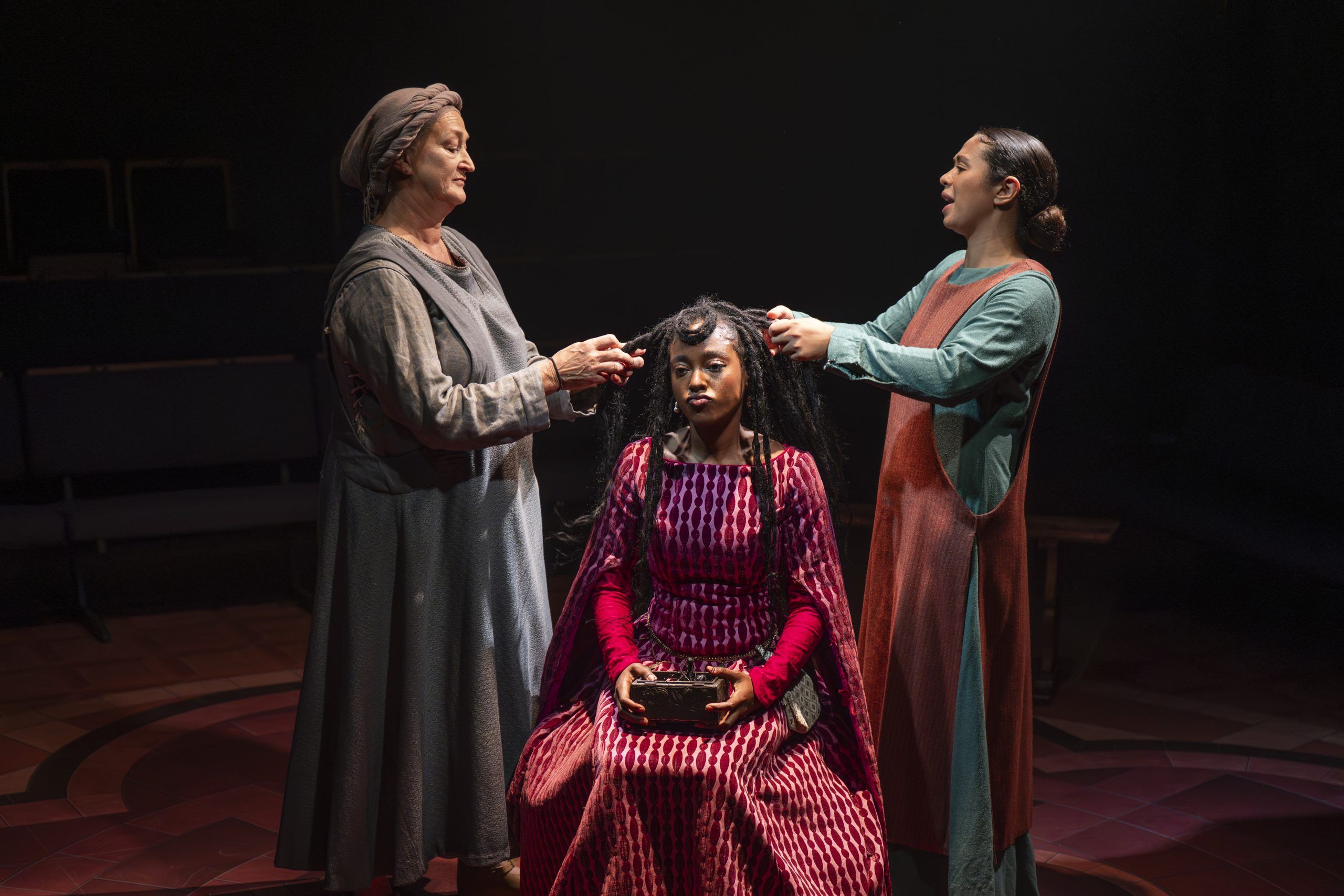
How did you approach playing a character who starts off kind of shallow – focused on fashion and marriage – and ends up becoming a saint? That’s a huge journey.
At first, I was intimidated. The idea of a saint feels almost inhuman – flawless, above the rest of us. But in talking with Chiara (the playwright) and Blanche (the director), I came to see the beauty of Clare is that she isn’t flawless. She’s aware of her flaws, and that self-awareness is what makes her compelling.
It’s not a transformation from A to Z – it’s more like A to A.1. She doesn’t abandon who she is. She still loves beautiful things. Fashion is part of her identity – not vanity, but a form of artistic expression and agency in a world where women had very few options.
What helped me connect with her was thinking about how she starts to choose her own life. There are key moments in the play that open her eyes – and I’ve experienced that too. Growing up comfortable, I didn’t realise how different other people’s lives could be. But once you’re exposed to that, your worldview starts to shift.
What’s been the biggest surprise about preparing for your first live performance, especially in a really intimate venue like the Orange Tree?
I definitely underestimated how much work theatre requires. It uses a completely different muscle, and I had to learn that fast. But what really surprised me was how intimate the experience is – not just with the audience, but within the company. Unlike a big set like Queen Charlotte, where you barely meet half the departments, this has become a real family.
That closeness creates a level of trust and vulnerability that’s essential – especially with a play this emotionally demanding. You’re constantly confronting inequality and injustice, things most people scroll past to avoid. Here, you have to sit in that discomfort every night. And to do that without burning out, you need community. I didn’t realise how much I’d rely on that support, or how generously it would be offered.
Coming from screen work, how did you adjust to performing in the round at the Orange Tree – with no close-ups, no edits, and the audience all around you?
I’ve been able to bring a lot of my LAMDA training back for this, which has been so refreshing. On set, you might warm up, but then spend hours in hair and makeup and lose it all. Here, warming up and down is part of the rhythm – it feels embodied, live.
Performing in the round has reawakened my whole body. I’ve been using my back, filling my lungs, staying grounded in my voice – things that just aren’t needed on screen. The first half of rehearsals was all character and world-building, but the second half was about presence: staying on voice, making sure every word lands, especially with no mics.
I’d forgotten how vital that is. You have to make sure someone up in the gallery hears it just as clearly as someone at your feet. It’s terrifying – but also exhilarating.
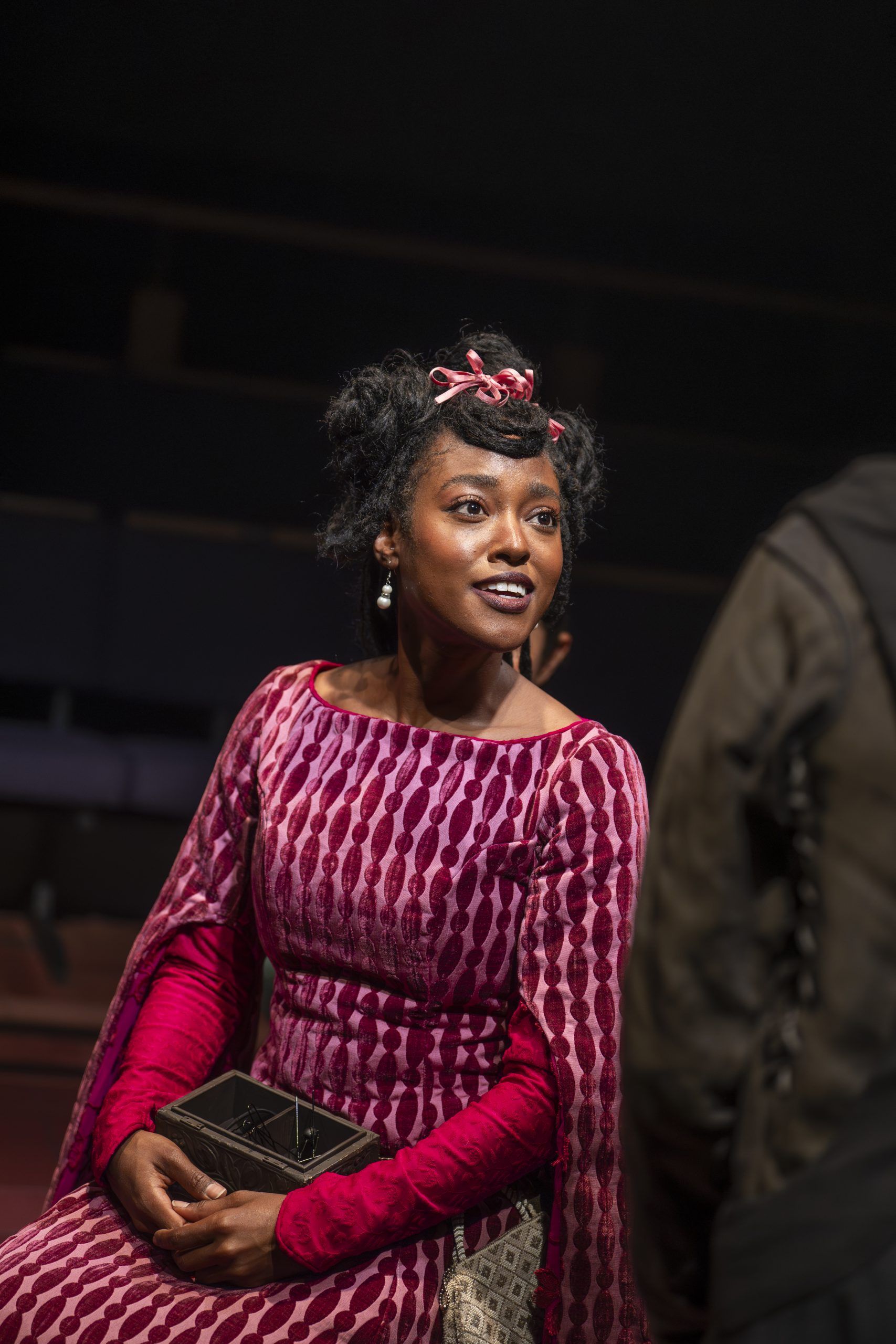
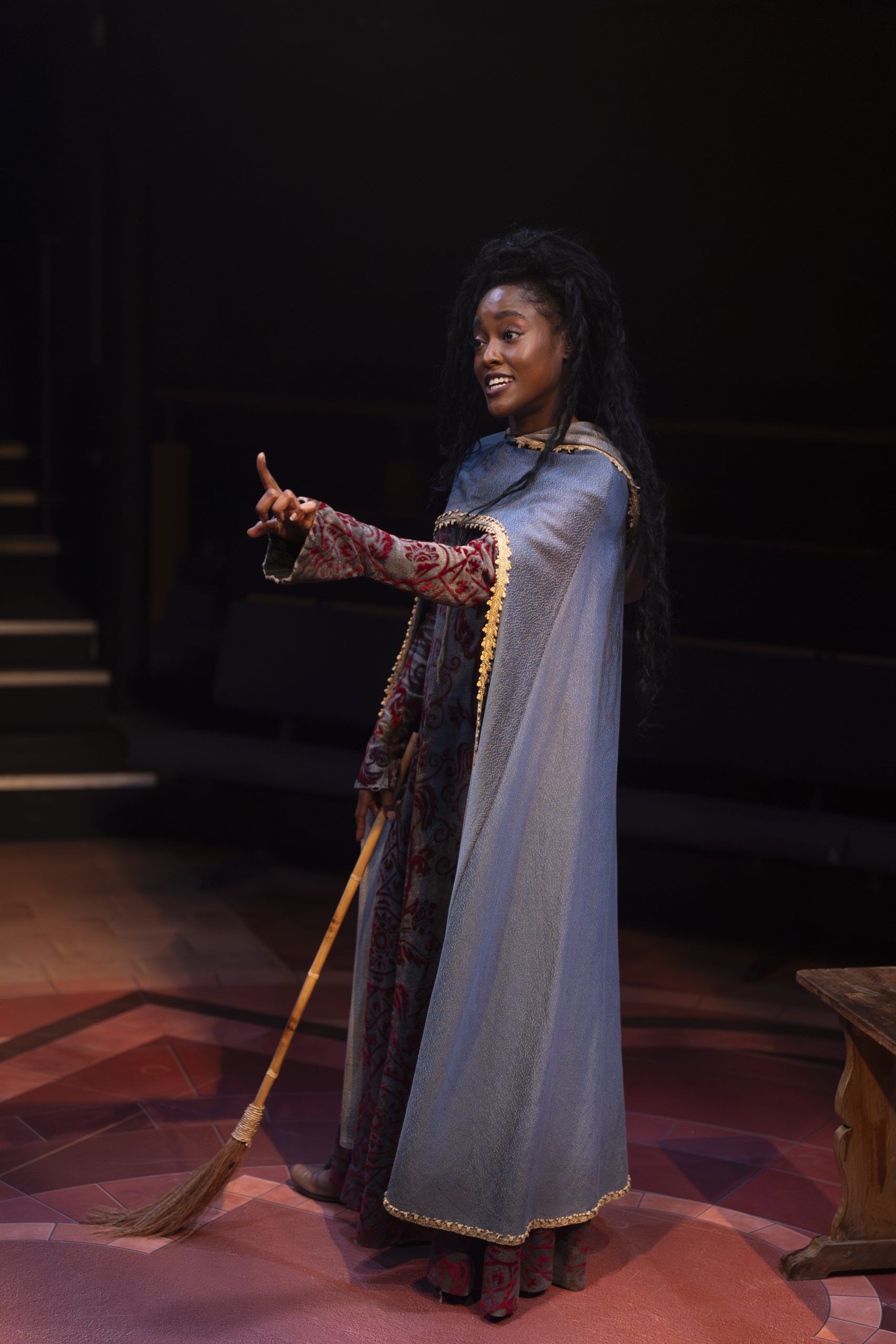
I read that when you found out you’d got Queen Charlotte, you were still a student – and working in a butcher’s shop. What do you remember about that moment? That must have been incredible.
It really was – though it feels like a lifetime ago. I was still in drama school, deep in imposter syndrome, and I honestly don’t feel like I was the same person then. But I remember it so clearly.
I was mid-shift at the butcher’s when my agent called me on video, which instantly felt suspicious – like, OK, this has to be good news. Why else would he need to see my face? But he wouldn’t say anything until he’d added my mum, my sister, my aunt, and then my uncle – who’s also my entertainment lawyer. Suddenly it was a six-way call, and I still have the screenshot.
Then he said, “There’s a show called Queen Charlotte… and it’s going to be starring Arsema Thomas.” Everyone turned to me – and I just froze. I couldn’t process it. I’d told myself for so long that I didn’t deserve it, that it wouldn’t happen – when it finally did, I went into shock.
Doing interviews like this helps to remind me just how huge that moment was. That one call changed everything.
What was it like stepping into Lady Danbury’s shoes – this iconic character Adjoa Andoh made legendary?
Honestly, it felt like being handed the version of myself I’d always hoped might exist. I hadn’t seen the show when I first auditioned, so I came in clean, just trying to be present and open. It wasn’t until later in the process that I watched Season 1 – and realised who she was.
And she just felt like home. She reminded me of my mum, my grandmother – women who’ve endured so much and face the world without flinching. To be seen as the start of that journey gave me a kind of self-belief I hadn’t felt before.
Adjoa was incredibly generous. She helped me build Lady Danbury from the ground up – even asked for my input on her background. We both poured parts of ourselves into her. We made the kind of woman we wish we’d seen on screen when we were younger.
Did anything about the way Queen Charlotte landed with audiences – especially your performance – surprise you?
Definitely. As an actor, I try to focus on serving the story, not my own performance. With Queen Charlotte, it was all about her arc – I just wanted to support that journey.
So I was really surprised when audiences connected so strongly with Agatha and her struggle. I wasn’t expecting that.
It reminded me how powerful the stories around the main plot can be. When they’re told well, they resonate just as much. I was thrilled to be part of a love story that also explored complex, meaningful ideas.
And with prequels, you never know how they’ll land – but this one felt like it truly revolutionised the period genre. I feel so lucky to have been part of it.
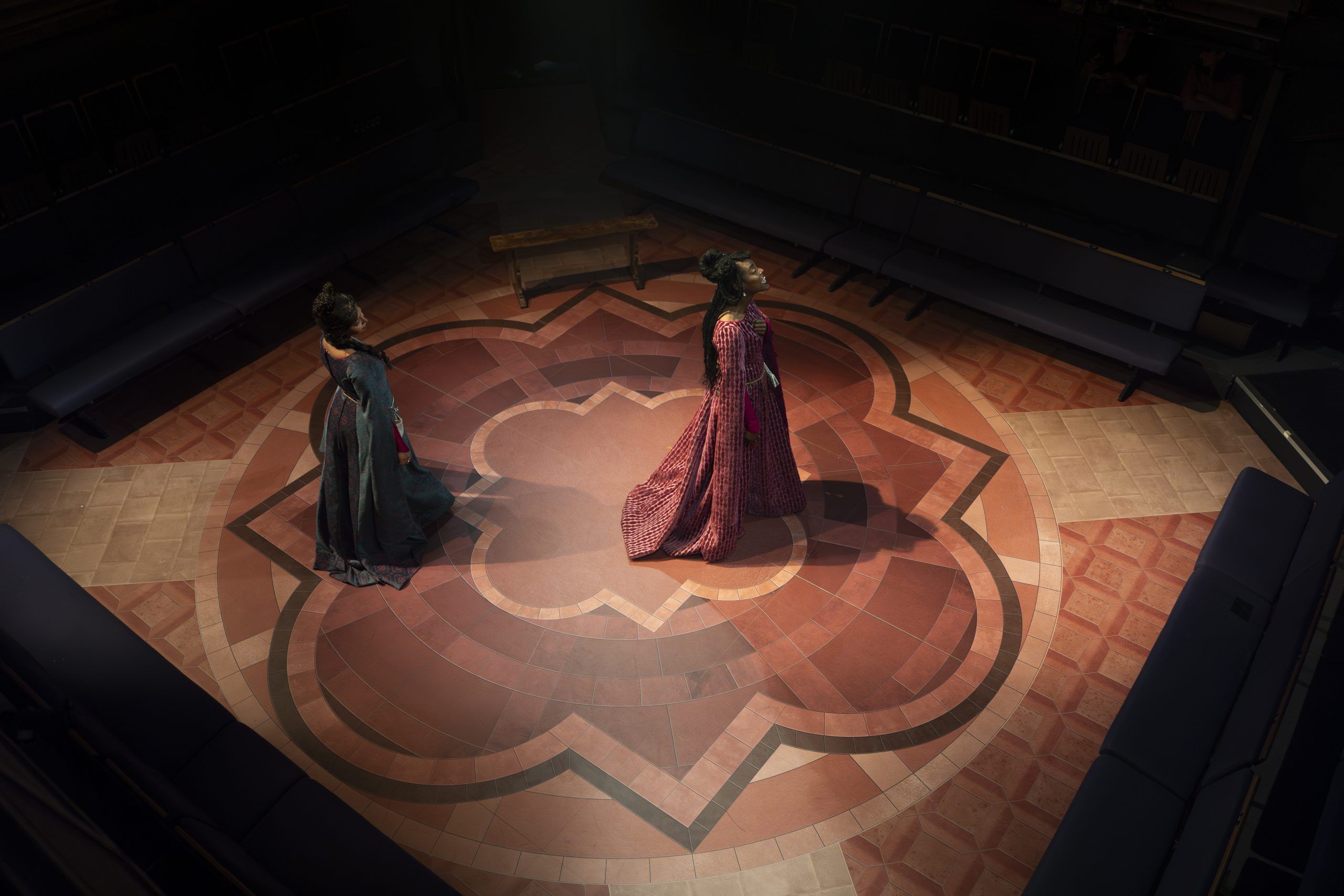
Before acting, you worked in global health and activism – from reproductive rights to refugee clinics. You’ve said that acting is also a form of activism for you. How do those phases of your life connect, and how does that show up in your work now?
It’s partly about the kinds of stories I choose. I try to play characters who aren’t just there to entertain, but to shift how people see the world.
This industry is so focused on profit and feel-good moments that a lot of what comes my way doesn’t align with my values. But I recognise that, for better or worse, I now have a platform. And while I don’t think what I have to say is more important than what reproductive health or environmental advocates are saying, people do listen to me.
So I try to pass the mic. If I have the megaphone – and I didn’t ask for it, but I have it – the most honest thing I can do is hand it to someone who really needs to be heard.
You’ve spoken about the need to decolonise storytelling. When you look at the kinds of roles being offered – especially to Black women – do you feel the industry is moving fast enough?
There’s been a lot of surface-level change, but real systemic progress would mean a complete restructuring – and we’re nowhere near that. If things were truly shifting, we’d see more Black women and people of colour in top decision-making roles. That’s still rare.
Instead, we get a blanket version of representation – as if casting a Black woman is enough. But unless you interrogate what that representation actually says, you’re not changing anything.
Representation without reflection isn’t progress. The industry hasn’t done the self-examination it needs. Until it does, change will stay slow – and mostly cosmetic.
So when shows like Bridgerton or Queen Charlotte get praised for their diversity, do you see that as a step forward – or more of a compromise? Are the people behind these shows really thinking about it in the right way?
I think Queen Charlotte is a step forward – especially because it came from the mind of a Black woman. That gave her the power to tell the story her way, and you can see the impact of that. The fact that some people were disturbed by seeing Black characters in a period drama tells you how warped our view of history is.
We’ve been taught only certain people existed in the past – that everyone else lived on the margins or didn’t exist at all. Queen Charlotte challenges that. It forces audiences to confront their own discomfort. And if it’s fiction, why does it make you uncomfortable?
That discomfort is revealing – but shaking the ground is just the beginning. The follow-up matters too. What happens next?
That’s also why I find Poor Clare so powerful. It’s set in 13th-century Italy, and no one questions why I’m playing Clare. Because this story isn’t about race – it’s about a young woman fighting for justice. That’s who Clare is, and that’s who I am. That should be enough.
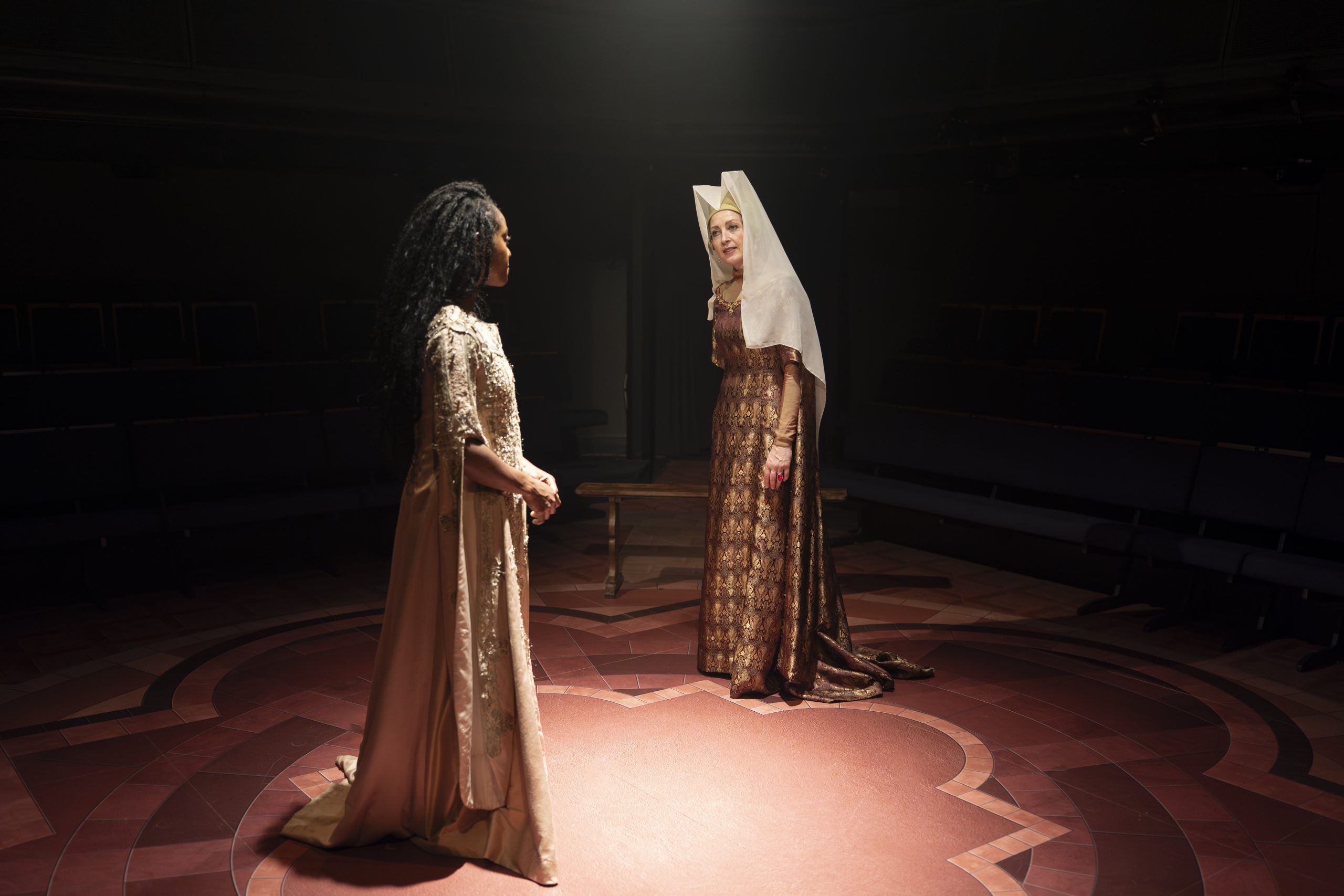
Do you think theatre is better positioned than film or TV to push conversations forward about race and representation – or does it face the same barriers?
I think it faces different barriers. Theatre has a beautiful ability to build real relationships with its audience – but who’s actually in that audience?
Theatre is expensive. Many people can’t afford it, and the ones who might benefit most from these stories often aren’t in the room. So while theatre has the potential to lead change, it’s still deeply tied to class.
Film and TV have their own issues, but they’re more accessible. Most people have a streaming platform, but many marginalised communities don’t have a local theatre – or any relationship with theatre at all.
If theatre is going to lead the conversation, we need to think seriously about access. Who are we making art for – and how do we make sure they can actually see it?
Due to technical issues during our first call, the interview was cut short. A few days later, we picked things back up – this time after I’d had the chance to see Poor Clare and meet Arsema in person.
The play deals powerfully with the divide between rich and poor – which of course is still such a pressing issue today. When preparing for the role, were you thinking about modern parallels – billionaires, the wealth gap – or was it something more personal?
I didn’t focus on modern billionaires. The play gives its own context – Clare’s family isn’t even the richest in Assisi, and the real wealth lies in the cities beyond.
What felt more personal was exploring my own privilege. I grew up with two UN diplomat parents, went to private schools, moved internationally. I’ve always known I’m not at the very top, but I’ve also had to realise how far I am from the bottom. That kind of middle privilege can mask just how steep the scale really is.
Clare’s blind spot is similar – she’s not flashy, but what she has is still far more than most. And when you’re used to comfort, it’s easy not to see that clearly.
Has playing Clare changed how you think about that in your own life?
Definitely. It’s made me more conscious day-to-day – especially in how I interact with people asking for money or food. I try to offer respect, eye contact, dignity. I even carry cash now so I can give more intentionally.
Clare’s radical generosity really stayed with me. Most of us want to give – but not if it means becoming vulnerable ourselves. And unless everyone’s doing it, the system doesn’t change. Being a have-not might ease your guilt, but it doesn’t fix inequality. That’s something I think about a lot.
Obviously, what Clare and Francis did was powerful – but it didn’t change the whole system. What do you think their intention was?
I think they were trying to change their own world. They couldn’t live within a system that felt so toxic and unjust, so they stepped out of it. I’ve felt that too – wanting to walk away because it all feels too broken. And I think a lot of people relate to that.
But Clare and Francis didn’t just isolate – they built an alternative. That’s what made the difference. They created something others could join, and that gave it power. When people feel the same and see another path, they don’t feel stuck anymore.
That’s how systems start to weaken – not through confrontation, but through creating new options. The more alternatives we make, the less control any one system has over us.
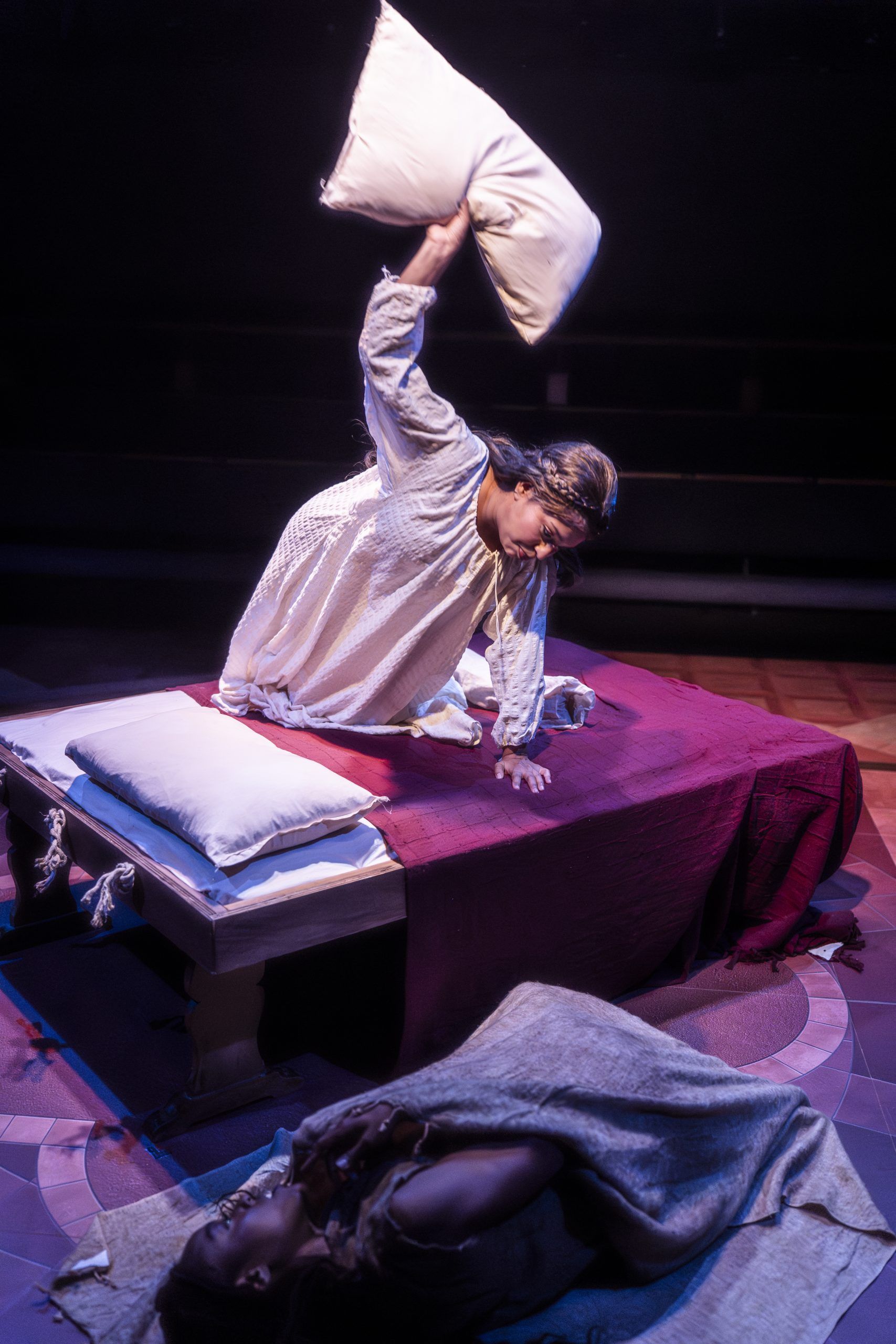
That moment in the play when Clare wears the hair shirt and Beatrice won’t even sleep next to her – it really struck me. Like, Beatrice is all of us, right? Choosing comfort over discomfort.
Exactly. Beatrice is us. And I think you only get to where Clare is – that radical place of sacrifice – through real introspection. You have to face the discomfort of your own comfort, especially when it comes at someone else’s expense. And that’s a hard thing to sit with.
Let’s talk about the language for a moment. The play’s set in 13th-century Italy, but the dialogue feels incredibly modern – even Gen Z at times. What was that like to perform?
It made the story much more accessible. Heavy themes like poverty and inequality can feel distant in period pieces, but this writing brings them into the present. The language breaks that barrier – these aren’t abstract historical figures, they’re people you recognise.
It also adds humour, which disarms the audience and draws them in. And there’s something profound in that – this is how people spoke in their time. Using modern speech shows how cyclical history is. The play meets the audience where they are. That’s what makes it powerful. There’s a real alchemy to it – and that’s down to the brilliance of the writing. It doesn’t let the audience off the hook.
There’s a powerful moment when Clare gives everything up to follow Francis, and then he tells her she’ll be going off to start the women’s movement alone. What’s going on for her emotionally in that moment?
It’s a moment of deep fear for Clare. She’s just made this huge leap, imagining they were jumping together – but suddenly, it’s like Francis steps back. She thought it was going to be them, but now she’s facing it alone. That’s terrifying for her, because she doesn’t like being alone – the idea of isolation is really frightening.
And on top of that, she starts to realise how different their situations are. As a man, Francis has the freedom to move through the world more easily. But Clare, by leaving her home and breaking off her engagement, has effectively ruined her life in the eyes of society – there’s no going back. So when he starts retreating and losing confidence, it forces her to confront just how vulnerable and exposed she really is. It’s destabilising, and all that fear and anxiety gets focused on him in that moment.
Where do you feel freer – on stage or on camera?
Oh, definitely on stage.
There’s just something about theatre that gives me more freedom. With screen work, everything is smaller – you have to be so aware of your movement, continuity, even things like where your hands were in the last take. You can’t try something different every time because it has to match. And ultimately, screen is the editor’s medium. Theatre belongs to the actor.
On stage, I get to live the story from start to finish every night. I don’t have to hold a map in my head of where we are in the scene sequence like I do when filming out of order. That kind of fragmentation makes it harder to stay emotionally connected. And if I discover something new about the character mid-shoot, I can’t go back and re-film. But in theatre, I can bring that discovery in the next night. I get to keep playing, keep evolving. That’s the joy of it.
What else can we expect to see you in soon? Any projects on the horizon?
Nothing in the acting space at the moment, but I’m working on a design project that I hope to release at the start of November – a jewellery collection inspired by anti-poaching efforts in Africa. Specifically, it’s drawn from the work of the Black Mambas, an all-women anti-poaching unit based in Zimbabwe. That’s what I’m pouring my energy into right now.
That sounds incredible – what a powerful way to combine creativity and impact. Thanks so much for taking the time to chat. It’s been a privilege and a pleasure.
Poor Clare is playing at the Orange Tree Theatre until 9th August 2025.
Book your tickets at orangetreetheatre.co.uk
Words by Nick Barr
Production Photos by Ellie Kurttz


